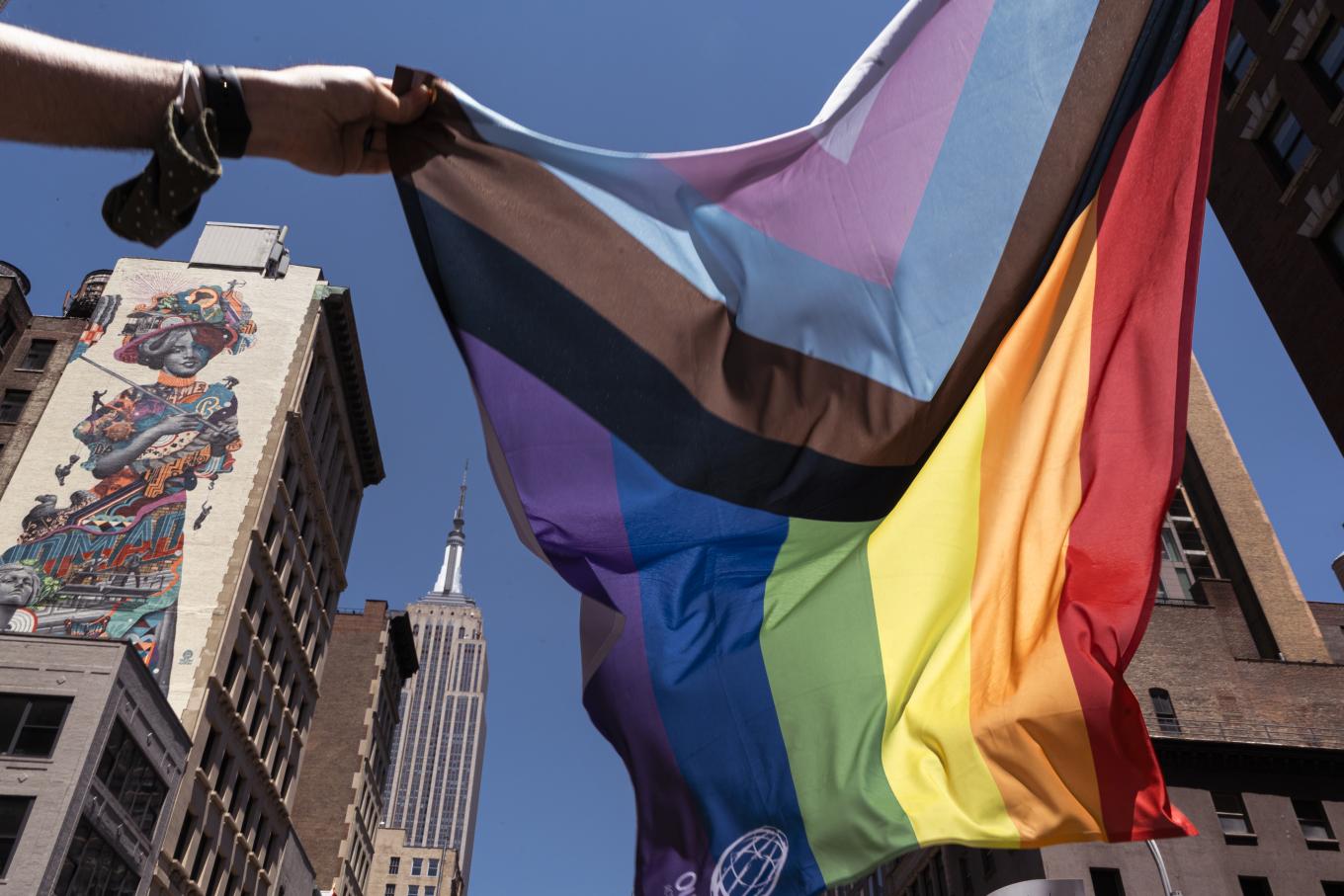
Country Overview
United States
At a glance
View more for this country:
While there has been progress on LGBTIQ equality in recent years in the United States, anti-LGBTIQ backlash is threatening to reverse many of these gains.
The legal recognition of LGBTIQ people’s rights has largely been won through court decisions. The U.S. Supreme Court legalized same-sex intimacy nationally in 2003, and in 2015, it effectively legalized same-sex marriage across the country as well. As of 2017, same-sex adoption is also legal in every state.
Federal law does not explicitly ban discrimination based on sexual orientation, gender identity, gender expression, or sex characteristics. However, in 2020, the Supreme Court ruled in Bostock v. Clayton County, Georgia (2020) that the prohibition on sex discrimination in the Civil Rights Act of 1964 extends to discrimination based on sexual orientation and gender identity. Several federal agencies under previous administrations also interpreted existing protections in housing and health care to be inclusive of sexual orientation and gender identity, but this is changing under the current administration.
Other laws regarding LGBTIQ people often vary by state. Most states have not enacted non-discrimination protections for LGBTIQ people, as, for example, only 23 out of 50 states explicitly prohibit discrimination in education based on sexual orientation and gender identity. The number of states with laws or policies limiting minors’ access to gender-affirming care increased from just four states in June 2022 to 23 states in January 2024. Most of these state laws also include specific exceptions expressly allowing for nonconsensual surgeries on intersex infants and children. As of writing, only 14 states allow transgender people to change the legal gender markers on their birth certificates through an administrative process that does not require medical documentation. Bills seeking to prohibit nonconsensual medical interventions on intersex minors have not been successful in any state.
Anti-LGBTIQ backlash is undermining equality at the state level. In 2024, over 487 anti-LGBTIQ bills were introduced in state legislatures, with the vast majority targeting children and youth. In contrast, only 296 bills supporting LGBTIQ equality were proposed. As of March 2025, the American Civil Liberties Union has tracked 527 anti-LGBTIQ bills under consideration in legislatures in all but four states in the country—from those seeking to restrict trans people’s access to health care to those that would limit education about LGBTIQ issues in schools. At least 27 states have enacted laws or policies restricting young people's access to gender-affirming health care, covering 40 percent of all trans youth ages 13 to 17 in the country.
Since Donald Trump began his second term as president in January 2025, curtailing the rights of LGBTIQ persons, especially trans, nonbinary, and intersex individuals, has been at the center of his agenda. In his first month in office, his decision to freeze nearly all foreign aid abruptly ended over a decade of critical U.S. support for LGBTIQ organizations and human rights defenders across the globe. To justify this, the administration spread disinformation on the work of LGBTIQ groups that received U.S. funding. The funding cuts were accompanied by a flurry of executive actions that imposed a binary definition of sex at the federal level; terminated diversity, equity, and inclusion programs; restricted access to gender-affirming health care for persons under 19, and more.
Public opinion about LGBTIQ issues is mixed. Although there have been more positive and diverse media representations in recent years, media representation can still perpetuate harmful stereotypes. There have been many openly LGBTIQ government officials, but many politicians also routinely engage in hate speech against LGBTIQ communities.
Due to the lack of comprehensive legal protections and intensifying anti-LGBTIQ rhetoric, LGBTIQ people remain vulnerable to violence and discrimination. LGBTIQ people often face family rejection, bullying, and hate speech, and are more likely to experience economic insecurity and homelessness. Trans women, and trans women of color in particular, face high levels of violence and murder, including by police officers.
*Outright research indicates that the bodily autonomy of intersex people is not respected and protected in this country.
Global Impact
Sub-Saharan Africa
Outright supports LGBTIQ organizations in Sub-Saharan Africa and works with mainstream human rights organizations to respect human rights and influence positive changes in laws, policies, attitudes and beliefs that cause discrimination against LGBTIQ people.
United Nations
Our work at the United Nations centers around advocating for the advancement of the rights of LGBTIQ people.
View this regionAsia
Our work in Asia promotes acceptance of sexual and gender diversity at all levels of society.
View this regionSouthwest Asia and North Africa
In the Southwest Asia and North Africa, we partner with local groups in various countries as part of our international solidarity work. We also work with our local partners on different topics through capacity building, advocacy, research and holistic security.
Europe and Central Asia
Outright International partners with activists to fight for an end to human rights violations based on sexual orientation, gender identity and gender expression in Europe and Central Asia, where most of our work involves emergency responses to harassment, discrimination, violence, and most recently, Russia’s brutal and expanded invasion of Ukraine.
Americas
Our work in the Americas continues to build on the fundamental and positive transformation of human rights protections in recent years. We partner with groups in the Caribbean that focus on ending gender-based violence and eradicating discrimination against trans people.
Pacific
Our work in the Pacific aims to increase the visibility of activists, respond to human rights emergencies, and actively bridge local, regional, and international activism to achieve equality and justice.
Global
View this region
Human Rights Research
Since 1990, we have partnered with activists from all over the world to produce hundreds of groundbreaking reports.
Read Our Reports